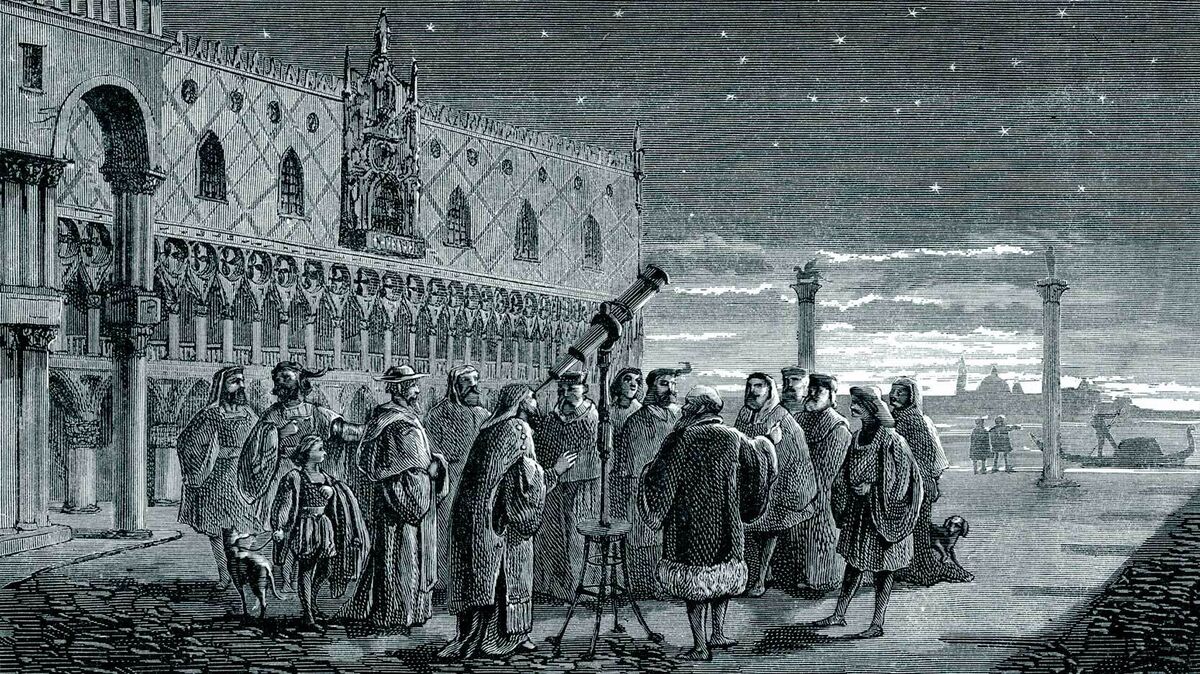
What was the Scientific Revolution? It is the period in history that marked the beginning of modern science. This period extended from the middle of the 16th century throughout most of the 17th century. Explore key scientific revolution inventions and discoveries.
The Idea That Launched the Scientific Revolution
The scientific revolution is believed to have begun with a new understanding of the universe. Prior to the Scientific Revolution, people believed the Earth was the center of the universe. It was commonly believed that the other planets and the sun revolved around the Earth. In 1543, Polish astronomer Nicolaus Copernicus published a new theory in his book On the Revolutions of the Celestial Spheres.
With his theory of a heliocentric universe, Copernicus asserted that the sun is the universe's center, with all planets revolving around it. This assertion was based on decades of work as an astronomer. In his book, Copernicus focused first on disproving the previous theory, which is a strategy for separating sound, correct science from examples of pseudoscience. While his theory was controversial at the time, it has long-since been verified as correct.
Scientific Revolution Dates
The 1543 introduction of Copernicus' new theory of the universe is often credited with launching the Scientific Revolution, the point in history in which the way people understood the world drastically changed as fact-based scientific discoveries were made. Many advances followed over the coming century and beyond.
The scientific revolution is generally said to have taken place from 1543-1687, though not all sources agree on the exact starting and ending dates. The work done during this time continues to influence modern scientific research and thought.
New ways of thinking about the universe led to the development of many historically significant ideas and discoveries.
- heliotropic universe (1543) - Nicolaus Copernicus theorized that the universe is heliocentric.
- inertia (1600) - Galileo Galilei discovered the principle of inertia. This laid the foundation for understanding motion.
- magnetic poles (1600) - William Gilbert discovered that the Earth has magnetic poles.
- planetary motion (1609) - Johannes Kepler's first two laws of planetary motion reveal that planets move in an oval path around the sun.
- logarithms (1610) - John Napier published logarithm tables that could be used to speed up complex calculations.
- scientific method (1620) - Sir Francis Bacon created the scientific method.
- light refraction (1621) - Willebrord Snell identified the law of light refraction, which is referred to as Snell's law.
- lymphatic system (1652) - Physician and mathematician Thomas Bartholin greatly advances knowledge of the human body by discovering the lymphatic system.
- red blood cells (1658) - Biologist Jan Swammerdam further unlocks the mysteries of the human body by discovering red blood cells.
- microorganisms (1674) - Naturalist Antony van Leeuwenhoek discovered the existence of microorganisms.
- speed of light (1676) - Ole Christensen Roemer captured the first measurement of the speed of light.
- gravity and motion (1687) - Sir Isaac Newton released the book Philosophiae Naturalis Principia Mathematica, which advanced the understanding of physics, including gravity and motion.
Examples of Scientific Revolution Inventions
The Scientific Revolution wasn't just about the development of new theories. Advanced knowledge paved the way for many innovative inventions during the Scientific Revolution.
- compound microscope (1590) - Teenager Zacharias Janssen invented the first compound microscope, likely with assistance from his father Hans Janssen, who made eyeglasses for a living.
- thermometer (1593) - Galileo Galilei created the first thermometer, which was actually a thermoscope. It allowed water temperature changes to be measured for the first time.
- adding machine (1645) - Blaise Pascal invented the adding machine.
- telescope (1608) - Hans Lippershey created the refracting telescope.
- slide rule (1632) - William Oughtred invented the slide rule, which further sped up the process of completing complex calculations.
- cartesian coordinate system (1637) - Rene Descartes invented this system, which is better known as the x-y axis for graphs.
- barometer (1643) - Physicist Evangelista Torricelli invented the first barometer. His invention was a mercury barometer.
- probability/statistics (1654) - Blaise Pascal and Pierre de Fermat together invented the mathematical foundation for statistics and probability.
- calculus (1665) - Sir Isaac Newton invented calculus, though he didn't publish it until 1687. Calculus is the mathematics of continual change.
- reflecting telescope (1667) - Sir Isaac Newton further advanced science by making the first reflecting telescope.
Science: Past, Present and Future
These early scientific ideas and inventions revealed many truths about science that empowered people to be able to understand the natural world. The groundbreaking work of the Scientific Revolution underlies what humans know about living things and the universe today. Many discoveries and advancements have been made since this time, with more to come in the future. Explore some of these advancements by discovering a few inventions from the Industrial Revolution.
The world will always need scientists to power the way to new discoveries. If you're interested in science, start building a strong foundation that just may allow you to pursue science as a career. Learn everything you can, starting with building a basic vocabulary of science terms before moving into astronomy, biology, chemistry, physics, or another area of scientific study.